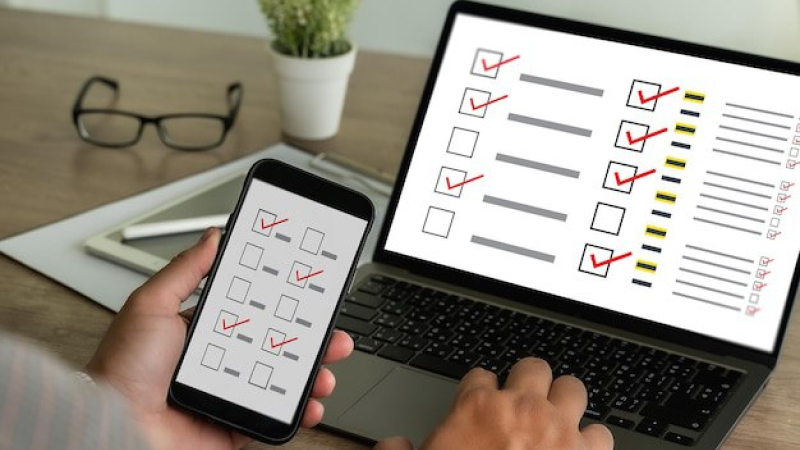eCommerce Testing: Paving the Way for Flawless Online Shopping Experiences

As consumers increasingly turn to the internet for their purchasing needs, the pressure on eCommerce platforms is immense. Users expect them to deliver flawless, user-friendly interfaces. 2.71 billion people shop online, and a single glitch or error can lead to frustrated customers, abandoned carts, and significant loss in revenue. Nearly 50% of US customers ditch their online purchases. This is where the critical role of eCommerce testing comes into play. Having an online store that is fully functional is not just a technical necessity but a cornerstone of maintaining customer trust and satisfaction. By subjecting their eCommerce to frequent testing, businesses can recognize problems and make amends long before they become customer-facing.
What Is eCommerce Testing?

Basically, eCommerce testing is the process of checking different parts of a website selling goods, like the design, specs, and features. The idea is to make sure every tool works properly and has no adverse impact on the platform’s speed. This comprehensive approach involves various examination techniques, such as:
- Functional testing
- Performance testing
- Security testing
- Usability testing
Scope of eCommerce Testing
The scope of eCommerce software testing encompasses a wide range of activities designed, such as:
- Functional Testing: Confirms everything is working as expected, from interacting with items to checking out and tracking shipments.
- Performance Testing: Assesses the speed, responsiveness, and stability of the site running under various real-life scenarios.
- Usability Testing: Analyzes the ease of use and makes sure that the shopping experience is seamless.
- Compatibility Testing: Evaluates the website performance across different devices, browsers, and OS.
- Security Testing: Looks into revealing security concerns leading to possible data leaks or other such problems. The ultimate aim is to shield the business as well as its customers.
- Database (DB) Testing: Checks the strength of your database (i.e. accurate data storing & fetching from DB).
Global eCommerce sales are planned to reach $7.4 trillion by 2025. As the eCommerce market expands, so does the necessity of thorough eCommerce QA testing. A study by Capgemini found that 60% of customers are less likely to return to a site after a poor user experience. Moreover, eCommerce sites that invest in comprehensive testing can see a 20% increase in conversion rates.
Objectives of eCommerce Testing
The main objectives of eCommerce online shop test include:
- Ensuring Functionality. Making sure that users do not have to wait or get disappointed on the search path, up to payment gateways functioning properly.
- Improving Performance. Testers make sure the website can handle the load and perform stable under high-traffic conditions.
- Ensuring Compatibility. Testing on different devices, browsers, and OS to ensure the site works perfectly.
- Maintaining Data Integrity. For example, processing inventory management and order transactions with accuracy and reliability.
- Securing Data. Required to prevent any data breaches that could compromise customer/business security.
- Enhancing User Experience. eCommerce user experience testing is about ensuring the site is intuitive and easy to navigate.
- Payment testing. This one refers to making sure that the payment process is seamless and working well with all types of payment methods, as well as using testers that pay with real money.
eCommerce testing not only helps prevent potential issues but also enhances overall performance and credibility.
Benefits of Comprehensive eCommerce Testing

So, what makes comprehensive examination a beneficial eCommerce testing strategy?
Enhanced User Experience
By identifying and rectifying usability issues, businesses can provide an enjoyable shopping journey. This type of assessment assists with making navigation as simple as possible, as well as guaranteeing quick access to products and hassle-free checkout.
Bug Detection and Resolution
Comprehensive eCommerce testing helps identify potential issues before they escalate, allowing for timely fixes. This proactive approach saves time and resources.
Performance Optimization
By optimizing performance, businesses can reduce bounce rates, increase page views, and ultimately boost conversion rates.
Security Assurance
Comprehensive eCommerce testing includes rigorous security checks to identify and mitigate vulnerabilities. This way, businesses can build trust with their customers, assuring them that their personal and financial information is safe.
Cross-Platform Compatibility
This type of testing ensures that all customers, regardless of how they access the site, can easily access the platform and make purchases on any device, or browser, with any version or operating system.
Useful eCommerce Testing Checklist

Homepage
The homepage is the first point of contact for customers. It sets the tone for their shopping experience. Except for the standard procedures, testers should also verify that all interactive elements, such as sliders and carousels, operate smoothly.
Search Mechanism
A robust search mechanism is crucial for helping customers find products from various categories quickly. Such examinations should cover the accuracy and speed of search results, the functionality of filters and sorting options, and the ability to handle various search queries.
Product List Pages
Product list pages display multiple items and need to be tested for proper loading of images, accurate display of product info, and the functionality of pagination.
Shopping Carts
Testing should ensure that items can be added, removed, and updated hassle-free. The shopping cart should maintain its state across sessions and devices.
Registration
A smooth registration process is essential for converting visitors into customers. The idea of testing is to ensure that the sign up process is straightforward, with options for social media accounts and guest checkouts.
Customer Account
The customer account section should provide easy access to history, personal data, and selected payment methods. Security testing is particularly vital to protect sensitive information.
Product Detail Pages
Product detail pages should provide all necessary information about an item. Testing should confirm that images, descriptions, prices, and availability are displayed correctly. Also, verify that interactive elements like zoom functionality, product options (size, color), and customer reviews operate as expected.
Payments
Examine all payment methods (credit cards, PayPal, eWallets, Buy now, pay later (BNPL),etc.) for functionality and security. Make sure that payment confirmations and receipts are sent promptly.
Recommended Products/Services
Many eCommerce sites use recommendation engines to suggest additional products or services. Thus, it’s necessary to verify that clicking on recommended items leads to the appropriate product detail pages and that the system updates suggestions based on user preferences pr buying history.
After-Order Tests
Post-purchase processes are crucial for customer satisfaction. Testing the functionality of order confirmation emails, shipment tracking, and return handling is a must.
Contact Us Page
The "Contact Us'' page should provide customers with easy ways to get in touch with the business representatives. Specialists should check how contact forms, email links, and any live chat options work. Ensure that contact info is accurate and that customer inquiries are routed to the appropriate channels.
FAQs (Frequently Asked Questions)
The FAQ section helps customers find quick answers to common questions. eCommerce performance testing should confirm that all links and content are accurate and up-to-date.By following this comprehensive checklist, businesses can ensure that their eCommerce platforms deliver a flawless shopping experience, fostering trust and loyalty among customers.
The Role of Crowdtesting in eCommerce Mobile App Testing

Diverse Testing Conditions
Crowdtesting leverages a diverse group of testers from various backgrounds, locations, and device configurations, providing a broad spectrum of scenarios and test cases for online shopping app. This diversity is especially important in eCommerce software testing, where the application must function seamlessly across different environments so that all users have access 24/7. By exposing the app to varied conditions, crowdtesting assists with identifying potential issues that might not surface in a controlled testing environment.
Real-World User Feedback
eCommerce crowd testing involves real users who can provide genuine, practical feedback on the app’s performance. This feedback is invaluable as it comes from individuals who might use the app in their daily lives, providing insights into real-world scenarios and usage patterns. Such feedback helps developers understand the app's effectiveness in meeting user needs and highlights areas for improvement.
Scalability and Flexibility
eComerce and online shopping apps often need to be tested under different loads and usage scenarios, which can be efficiently managed through crowd testing for eCommerce. This approach allows for scaling up or down the number of testers, ensuring comprehensive testing without the constraints of in-house resources. Additionally, crowdtesting can be adapted to different phases of the development cycle.
Cost-Effectiveness
Crowdtesting can be a cost-effectiveness solution for eCommerce. By utilizing a distributed group of testers, businesses can reduce the expenses associated with maintaining a large in-house testing team or investing in extensive testing infrastructure. Crowdtesting platforms typically offer eCommerce testing services with flexible pricing models, making it all affordable even for smaller organizations or startups with limited budgets.
Faster Testing Cycles
Speed is crucial in the fast-paced online shopping and eCommerce industry, where new apps and updates need to be released quickly to meet market demands and regulatory or fashion changes. Crowdtesting accelerates the testing process by leveraging a large pool of testers who can work simultaneously on different aspects of the app. This parallel testing approach significantly reduces the time required to identify and resolve issues, enabling faster release cycles and ensuring that eCommerce apps are always up-to-date and compliant with industry standards.
Final Thoughts
Nowadays, the importance of delivering flawless online shopping experiences cannot be overstated. By ensuring that every aspect of an online store functions correctly, from the homepage and search mechanisms to product pages and checkout processes, businesses can significantly enhance user satisfaction and loyalty. Comprehensive software testing for retail and wholesale is the best way to do so.In particular, crowdtesting plays a vital role in eCommerce application testing by providing diverse testing conditions, real-world user feedback, scalability, flexibility, cost-effectiveness, and faster testing cycles. These benefits collectively contribute to the development of reliable, user-friendly eComm applications that meet the needs of both online shoppers and site managers.In summary, investing in comprehensive eCommerce testing is not just a technical necessity but a strategic imperative. It ensures that online stores provide a flawless, secure, and satisfying shopping experience, essential for maintaining customer trust and driving business growth in the highly competitive eCommerce landscape. Looking to dive deeper into the benefits of crowd-testing? Reach out to us at sales@ubertesters.com for an in-depth exploration.

